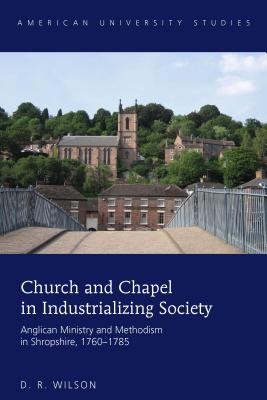
- We will send in 10–14 business days.
- Author: D R Wilson
- Publisher: Peter Lang Inc., International Academic Publishers
- ISBN-10: 1433130130
- ISBN-13: 9781433130137
- Format: 15 x 22.6 x 2.3 cm, hardcover
- Language: English
- SAVE -10% with code: EXTRA
Church and Chapel in Industrializing Society; Anglican Ministry and Methodism in Shropshire, 1760-1785 (e-book) (used book) | bookbook.eu
Reviews
Description
Church and Chapel in Industrializing Society: Anglican Ministry and Methodism in Shropshire, 1760-1785 envelopes a new and provocative revisionist history of Methodism and the Church of England in the eighteenth century, challenging the Church's perception as a varied body with myriad obstacles which it dutifully and substantially confronted (if not always successfully) through the maintenance of an ecclesiastically and theologically rooted pastoral ideal. This model was lived out 'on the ground' by the parish clergy, many of whom were demonstrably innovative and conscientious in fulfilling their pastoral vocation vis-Ã -vis the new demands presented by the social, ecclesiastical, political, and economic forces of the day, not least of which was the rise of industrialisation. Contrary to the effete arguments of older cadre church historians, heavily reliant on the nineteenth-century denominational histories and primarily the various forms of Methodism, this book provides a thoroughly researched study of the ministry of John William Fletcher, incumbent of the parish of Madeley at the heart of the industrial revolution, whose own work along with that of his Evangelically minded Anglican-Methodist colleagues found the Church of England sufficiently strong and remarkably flexible enough to rigorously and creatively do the work of the Church alongside their non-Anglican Evangelical counterparts. Despite the manifest challenges of industrializing society, residual dissent, and competition from the Church's rivals, the Establishment was not incapable of competing in the religious marketplace.EXTRA 10 % discount with code: EXTRA
The promotion ends in 10d.08:14:57
The discount code is valid when purchasing from 10 €. Discounts do not stack.
- Author: D R Wilson
- Publisher: Peter Lang Inc., International Academic Publishers
- ISBN-10: 1433130130
- ISBN-13: 9781433130137
- Format: 15 x 22.6 x 2.3 cm, hardcover
- Language: English English


Reviews